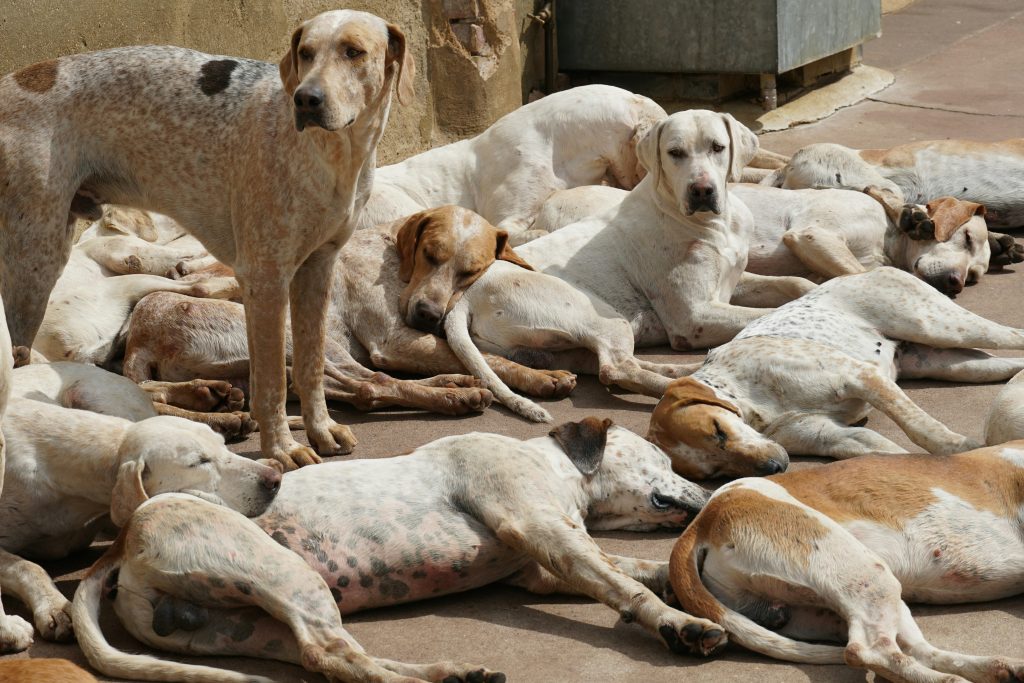“Trap, Neuter, Vaccinate, and Return”, Morocco’s strategy to save stray dogs
3 min read
Morocco scales up humane stray dog program to protect both people and pets ahead of World Cup.
The country’s “Trap, Neuter, Vaccinate, and Return” strategy balances public health, safety, and animal welfare as it aims to humanely control a growing stray dog population.
Morocco is intensifying efforts to manage its stray dog population with a nationwide rollout of its “Trap, Neuter, Vaccinate, and Return” (TNVR) program. This humane initiative aims to sterilize, vaccinate, and re-release stray dogs to control their numbers while addressing public health risks, including rabies, and ensuring animal welfare.
The program represents a shift in policy amid criticism from international animal rights groups following Morocco’s announcement as a co-host of the 2030 FIFA World Cup. Allegations of mass dog culling had circulated widely, prompting public scrutiny and calls for more transparent, humane approaches.
On the outskirts of Rabat, Morocco’s capital, a modest dog pound nestled in a nearby forest quietly operates at the center of this effort. Inside, a scrappy, brown street dog—commonly known in Morocco as a “Beldi”—is gently lifted from a cage. She’s quickly taken to a surgical table for spaying and a rabies vaccination, two vital steps before being released back to the streets with a blue identification tag clipped to her ear. This tag signals to the public that the dog has been treated and poses no danger.
Since adopting the TNVR strategy in 2019, Morocco has spent around $23 million on building animal control infrastructure. A flagship facility in Rabat is already functional, and the government plans to open at least 14 more centers across major cities in the coming years. According to Mohamed Roudani, Director of Public Health and Green Spaces at the Ministry of the Interior, the initiative aims to balance public safety, disease control, and ethical treatment of animals.
“Today, this is the only solution to manage this issue, reduce nuisances, and prevent diseases transmitted by these animals,” Roudani said. He added that the program reflects Morocco’s alignment with international animal welfare standards, including those set by the World Organization for Animal Health (WOAH).
Estimating the stray dog population remains challenging, but officials believe the number lies between 1.2 and 1.5 million. While some communities collectively feed and protect these dogs, others view them as a threat, especially due to rabies outbreaks. Over 100,000 people in Morocco have reportedly required rabies vaccinations in recent years following dog attacks.
Dr. Fatima Zahra Bouasria, a veterinarian involved with the program, emphasized the public health importance of their work. “The most important issue behind this is the transmission of rabies. In Morocco, the dog is unfortunately a vector,” she explained.
At a TVNR center in El Aarjate, opened to journalists for transparency, enclosures appear clean, spacious, and organized. Staff members provide fresh food and water, clean regularly, and interact gently and respectfully with the dogs. Many admit they grow attached to the animals and feel a pang of sadness when they are released after recovery.
Veterinarians from the Association for the Protection of Animals and Nature care for 400–500 dogs at a time, primarily from Rabat and neighboring regions. Only animals deemed too ill or aggressive are euthanized using sodium pentobarbital, in accordance with humane guidelines. The rest are returned to their original territories, unable to reproduce or transmit disease.
A draft animal welfare law is currently in progress, which would require all pet owners to vaccinate their animals and would impose penalties for abuse or neglect—a move welcomed by both animal rights advocates and health experts.
Despite its strides, Morocco has not escaped criticism. In January, the International Animal Welfare and Protection Coalition accused the government of exterminating up to 3 million stray dogs, particularly in areas near new World Cup stadium construction. The group cited anonymous sources and unverified videos. However, Moroccan officials and veterinarians have denied the claims, stressing their commitment to humane, science-based population control.
As Morocco prepares to welcome the world in 2030, it is betting that compassion and responsibility—not culling—will set the standard for animal management on the global stage.





